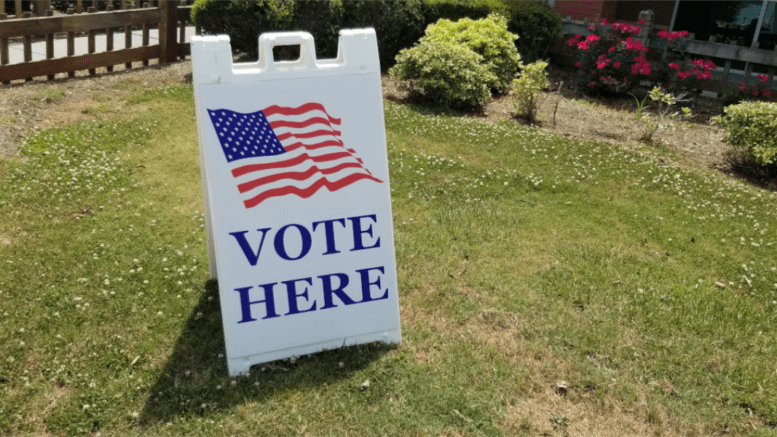by Jay Bookman, Georgia Recorder, [This article first appeared in the Georgia Recorder, republished with permission]
August 21, 2025
Do you believe in democracy, or do you believe in Donald Trump?
That’s the question you’ll have to ask yourself when you go into the voting booth to elect Georgia’s next governor.
If you’re a true believer in Donald Trump, if you see him as The Man Sent By God Himself to rescue America from the clutches of evil, then the candidate that you want as the next governor of Georgia is Lt. Gov. Burt Jones.
For everyone else, maybe not so much.
Had Jones been our governor during the election crisis of 2020, when Trump lost the election here in Georgia, the General Assembly would have been called into emergency session to overturn those results. If Jones had gotten his way, if he held the power then that he seeks today, the votes of almost 5 million Georgia voters might have been tossed aside as meaningless, and 235 years of self-government would have been ended by those who believe that they know better than the people.
Back then, Jones was a lowly state senator with high ambitions. His demand for a special session was ignored by wiser, more thoughtful Georgia leaders who understood that it would lead to the unraveling of the American system of government, and who figured that was too high a price to pay.
So, foiled in his demand for a special session, Jones tried other courses of action. He tried to join a lawsuit filed by the state of Texas, which alleged that his home state of Georgia was too incompetent and corrupt to be trusted to run an election, and demanded that the U.S. Supreme Court strip Georgia of its electoral votes.
The amicus brief submitted to the high court by Jones and others on behalf of Texas, and in betrayal of Georgia, made a variety of claims so ridiculous as to be absurd. Among other things, it alleged that 66,247 kids under 18 had been allowed to vote in Georgia, and that somehow thousands of others had voted without ever having registered. There was never any proof of those allegations, and remains so now.
When the Supreme Court refused to hear the Texas case, Jones and his co-conspirators then led a third effort, claiming themselves to be the true and rightful electors for the state of Georgia and pressuring Vice President Mike Pence and the Republican-controlled Congress to overthrow the millions of votes cast by Jones’ fellow Georgians. That effort contributed directly to the tragedy that was January 6.
In the upcoming campaign, Jones won’t remind voters that he believed that re-installing Trump as president was more important than preserving American democracy. That’s in part because he doesn’t want to remind general election voters of his role in that debacle, and in part because GOP primary voters need no such reminders. Trump’s recent endorsement of his campaign has already checked that box nicely.
Jones’ only announced opponent in the GOP primary, Chris Carr, also won’t make it an issue. As attorney general, Carr was one of those state leaders who understood what was really at stake in 2020, and who worked to frustrate that attack on our democracy. For example, Carr strongly opposed the effort by Texas to nullify the election here in Georgia, arguing to the Supreme Court that “The novel and far-reaching claims that Texas asserts, and the breathtaking remedies it seeks, are impossible to ground in legal principles and unmanageable.”
Carr’s actions were honorable and correct, but bragging about taking an honorable and correct stance in defense of democracy, but in defiance of Trump, is not exactly a winning strategy in a Republican primary these days.
The same would be true for a potential third candidate in the GOP gubernatorial primary. Secretary of State Brad Raffensperger played a crucial role in ensuring that the decision of Georgia voters was respected in 2020, even if he personally disagreed with that choice. Should Raffensperger announce what would be a doomed run for governor, he and Carr would split whatever Trump-skeptic vote remains in the Georgia GOP, clearing the way for Jones to win the nomination.
That primary is scheduled for May 19, and I expect the months between now and then to be a stern test of the American voters’ tolerance for chaos on a scale that we have not yet experienced.
Georgia Recorder is part of States Newsroom, a nonprofit news network supported by grants and a coalition of donors as a 501c(3) public charity. Georgia Recorder maintains editorial independence. Contact Editor Jill Nolin for questions: info@georgiarecorder.com.
